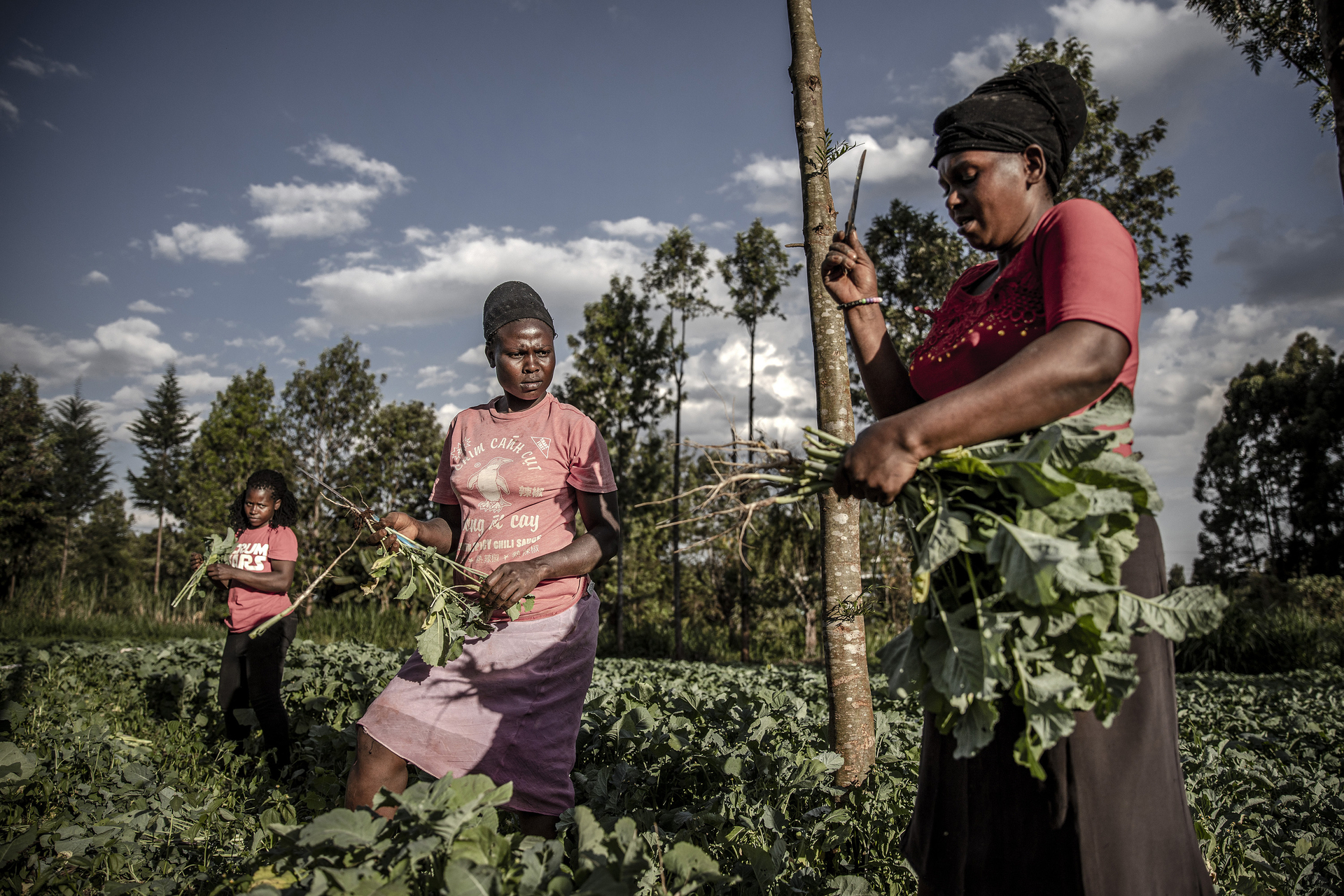May 20, 2025 | 21:10 GMT +7
May 20, 2025 | 21:10 GMT +7
Hotline: 0913.378.918
May 20, 2025 | 21:10 GMT +7
Hotline: 0913.378.918

The Vatican Roundtable of African Farmers provided farmers from Sub-Saharan Africa with the opportunity to bring their unique perspectives and concrete experiences to the forefront of global discussions on agricultural development.
The Director-General of the Food and Agriculture Organization of the United Nations (FAO), QU Dongyu, today called for immediate action to help Africa get back on track to meet global goals on food security and nutrition, pointing to science, technology and innovation, investments, and the continent's reservoir of resourceful youth, as potential solutions.
Qu was invited to address the first Vatican Roundtable of African Farmers, an event designed to provided farmers from Sub-Saharan Africa with the opportunity “to bring their unique perspectives and concrete experiences to the forefront of global discussions on agricultural development in their region,” organizers said.
African policy makers, UN leaders, development organizations, international financial institutions, private sector, academia, and civil society were also invited. Farmers from Kenya, Malawi, Nigeria, Sierra Leone, and Zimbabwe presented concrete cases of agricultural innovation and technologies and advanced key policy recommendations.
The meeting took place just days before the opening of the World Food Forum. FAO's flagship annual event is designed to foster dialogue and debate among relevant stakeholders, ranging from the young and the youthful, farmers, small-scale producers, Indigenous Peoples, policymakers, agri-investors and scientists, all with one goal: moving the needle for food security to achieve better production, better nutrition, better environment and better life, leaving no-one behind.
Africa has been a strong focus of FAO's efforts since its foundation, nearly 60 years. Unfortunately, the number of undernourished people there has risen to over 281 million since the outbreak of the COVID19 pandemic, while conflicts and the climate crisis continue to plague the continent.
Just this year, Cyclone Freddy struck Mozambique, Malawi and Zimbabwe, and there are ongoing droughts in Uganda and Somalia. And while Sudan, Mali, Niger and others continue to be gripped by conflict, new data released only two weeks ago confirmed that the Democratic Republic of the Congo continues to be one of the world’s largest food crises, with one-quarter of the population – more than 25 million people - facing crisis or emergency levels of food insecurity.
This all means that Africa is not on track to meet the global goals on food security and nutrition set out in the 2030 Agenda, nor the goals of the Malabo Declaration agreed to by Members of the African Union.
"In Africa, we critically and urgently need more efficient, more inclusive, more resilient and more sustainable agrifood systems to increase agricultural productivity to be 2 times higher than what it is now," Qu said.
Potential solutions
In his address to the gathering, the FAO Director-General focused on possible solutions, and "how we can move quickly to implement them."
Science, innovation and technology, for instance, offer significant opportunities for economic growth and the creation of new jobs in agrifood systems by contributing to producing more with less; by reducing food loss and waste, by helping food production adapt and mitigate the impacts of the climate crisis, and by improving access to finance and market information. But only if their advances are accessible to everyone.
Secondly, creating real change and at the scale requires investments, not just for agricultural businesses, but also for agricultural research, training for farmers, mechanization, as well as the introduction of new technologies and new crop varieties, and sustainable production systems.
In this context, FAO engages with the private sector through flagship initiatives such as the Hand-in-Hand Initiative, which is designed to accelerate agricultural transformation and sustainable rural development and currently includes 36 African countries.
Finally, with the highest percentage of youth in the world, more should be done to empower the continent's youth, whose agility, creativity and ability to innovate can be a game-changer in the efforts to overcome poverty and hunger in the region," Qu said.
This is the reason why youth engagement is one of the three pillars of the World Food Forum, which the Director-General created in 2021.
Today’s roundtable was held at the Pontifical Academy of Social Sciences, in Vatican City, and was sponsored by Bayer AG, with the patronage of the Pontifical Academy for Life.
(FAO.org)

(VAN) Attempts to bring down the price of the Japanese staple have had little effect amid a cost-of-living crisis.

(VAN) Fourth most important food crop in peril as Latin America and Caribbean suffer from slow-onset climate disaster.

(VAN) Shifting market dynamics and the noise around new legislation has propelled Trouw Nutrition’s research around early life nutrition in poultry. Today, it continues to be a key area of research.

(VAN) India is concerned about its food security and the livelihoods of its farmers if more US food imports are allowed.

(VAN) FAO's Director-General emphasises the need to work together to transform agrifood systems.

(VAN) Europe is facing its worst outbreak of foot-and-mouth since the start of the century.

(VAN) The central authorities, in early April, released a 10-year plan for rural vitalization.